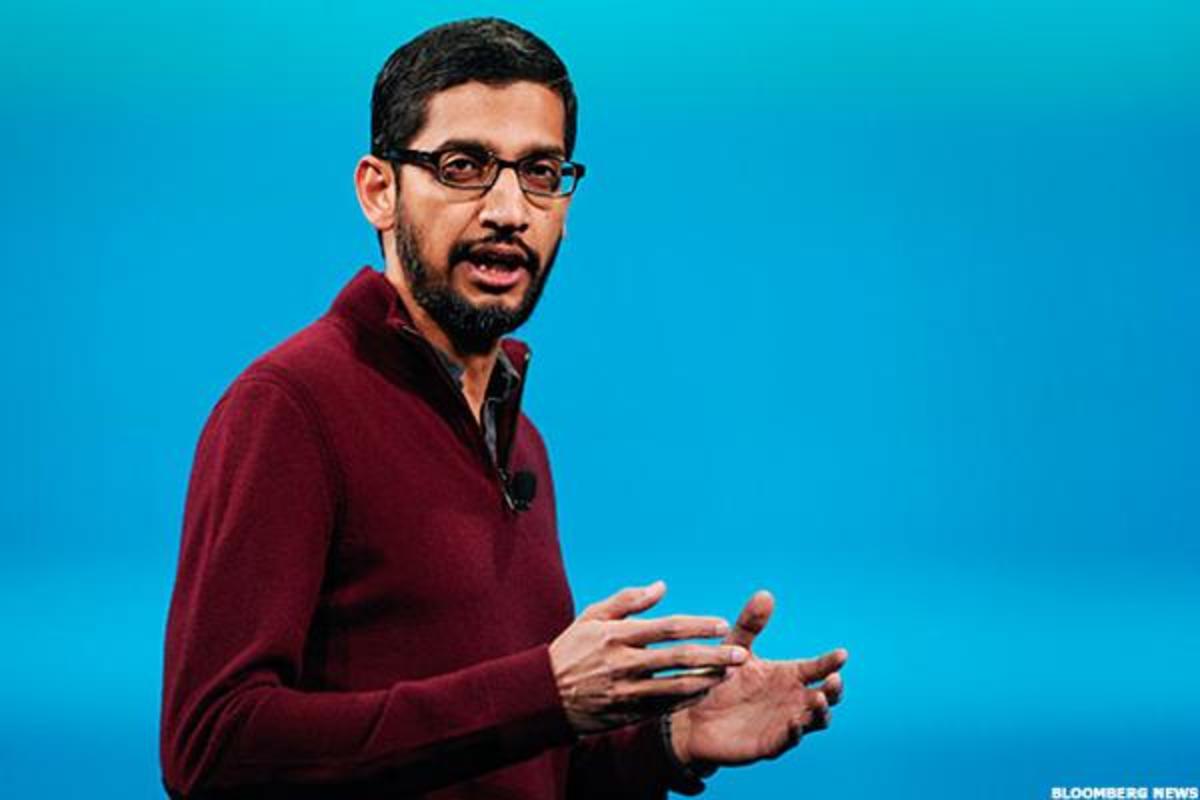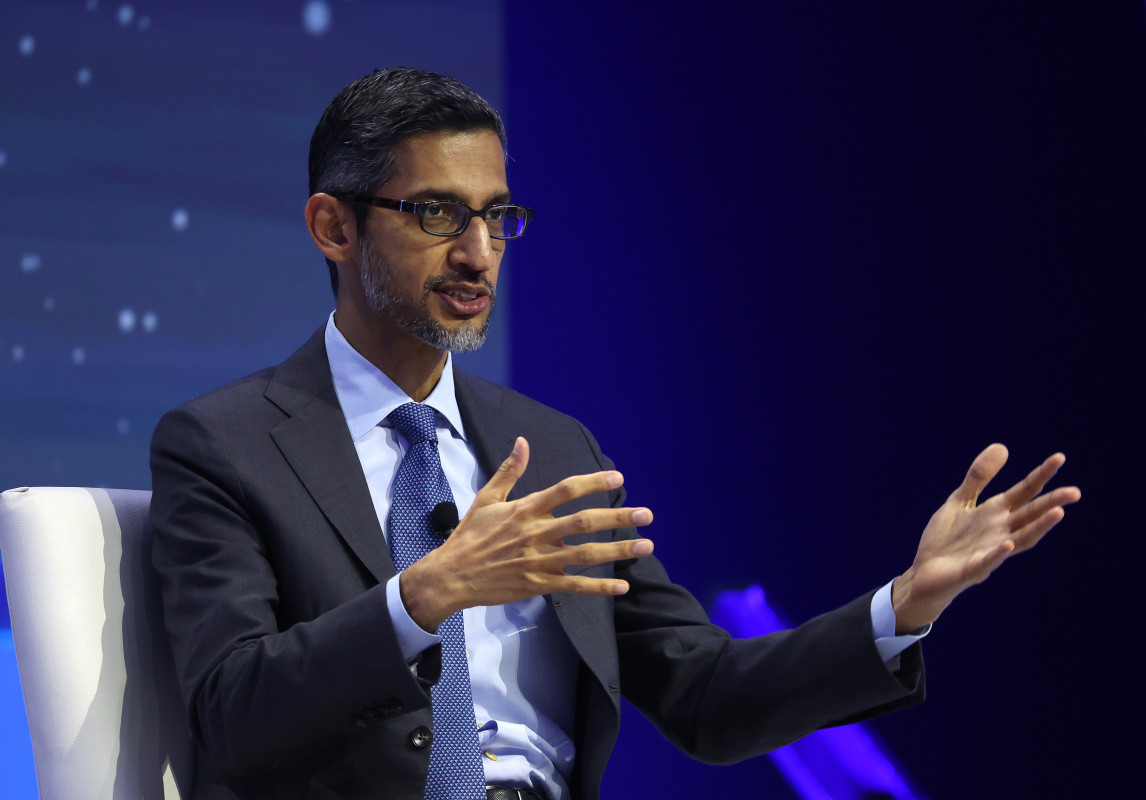
Google is a search engine giant; however, the recent rally in its parent company, Alphabet, has been driven more by its artificial intelligence opportunity than traditional search.
The company's Google Cloud is experiencing tailwinds from enterprise customers' AI research and development efforts, and Alphabet's large-language models could one day reshape its core search market.
The potential runway in AI is largely responsible for Alphabet's (GOOG) shares climbing 17% from its early March lows, significantly outperforming the S&P 500's 3% gain.
AI undeniably changes how businesses and people consume and interact with information. Still, given recent returns, Google investors can't be blamed for wondering how much of the opportunity is already priced in and when the rally could end.
To help answer that question, TheStreet's Bruce Kamich, who has analyzed stocks professionally for over 50 years, recently updated his analysis of Alphabet's stock, including a new price point that could cause investors to get uneasy.

Google enjoys AI tailwinds
Alphabet arguably possesses one of the most expansive data troves in the world. Its 90% market share in the search engine market and top-three ranking in the cloud service provider market means it knows a thing or two about managing and interpreting information.
Advantages stemming from its vast computing power and data experience position it perfectly to benefit from strengthening AI tailwinds since the successful launch of Open AI's ChatGPT in December 2022.
Related: Analysts weigh in on HubSpot after Google takeover chatter
After ChatGPT became the fastest app to eclipse 1 million users, businesses have scrambled to create and implement AI strategies.
Microsoft (MSFT) quickly inked a deal to incorporate ChatGPT into its Bing search engine and AI solutions offered to its Azure cloud data service clients. Banks are using AI to hedge risks and exploring how it can evaluate and price loans. Drugmakers are exploring AI's potential to improve medicine. Manufacturers are seeing if it can boost production and quality. Retailers are considering how it may help them manage inventory and blunt theft. The U.S. Department of Defense is even evaluating its use on the battlefield.
Seemingly, everyone is knee-deep in training and running AI programs, and Alphabet hasn't lost sight of that fact.
"I believe the transition we are seeing right now with AI will be the most profound in our lifetimes, far bigger than the shift to mobile or to the web before it," said CEO Sundar Pichai in December. "This new era of models represents one of the biggest science and engineering efforts we’ve undertaken as a company."
Last year, Alphabet responded to Microsoft's ChatGPT deal by launching its large language model, Bard, to insulate its search engine market share. However, its AI efforts didn't stop there. In December, it rolled out an even more powerful generative AI called Gemini, developed in collaboration between its DeepMind and Google Research teams.
Individuals use Gemini to discover and create increasingly relevant insight, and businesses use Gemini-powered tools to accelerate their AI R&D programs on Google Cloud.
As a result, Google's search market share has barely budged despite Microsoft's threat.
According to Similarweb, over the past six months, ChatGPT and Microsoft search and AI chatbot search market share has only increased by 0.32% and 0.14% to 1.84% and 1.44%, respectively. Google’s market share outside China has remained at almost 92%.
Related: Google is considering building a paywall around a popular feature
Google's Search & Other business segment sales increased 12.7% year-over-year to $48 billion, and YouTube ads jumped 15.6% to $9.2 billion in the fourth quarter.
Meanwhile, Google Cloud's Q4 revenue grew 26% year over year, faster than its larger CSP rivals, the AWS service of Amazon.com (AMZN) and Microsoft's Azure. This solidified its third-place ranking in the cloud provider market at 11%.
Across all its businesses, Alphabet's total revenue was $86 billion that quarter, up 13% from a year ago. Its profit climbed 42% to $1.61 per share – its second-consecutive quarter of above 40% earnings growth.
Google search fears appear misplaced
The AI revolution is far from over, so it's too soon to pick winners and losers. Nevertheless, Wedbush Securities analysts recently suggested that worrying about a search shift away from Google is off the mark.
"We acknowledge the near-term uncertainty associated with a broader [Search Generative Experience] rollout but have increasing conviction that over the longer term, SGE will provide ample monetization opportunity on par with, or potentially above, traditional Google search," Wedbush analysts Scott Devitt, Dan Ives, Michael Gerbino, and Matthew Weiss wrote to institutional investors.
More AI Stocks:
- Analysts revamp C3.ai stock price targets after earnings
- Analyst overhauls Nvidia stock price target after conference
- AMD stock analysts overhaul price targets after China news
Wedbush's analysis showed that Google AI search results included a similar number of ads to traditional search. For now, the placement is above or below the result. However, they expect ads within the results over time, improving advertising revenue opportunities.
Alphabet may also find a lucrative market exists to license Gemini. In March, reports suggested Apple (AAPL) may be considering using Google's AI to power AI features in upcoming consumer electronics, such as iPhones, iPads, Macs, and other Apple consumer electronics globally, an agreement could be worth big money.
"We think Google remains a clear generative AI beneficiary," wrote Wedbush.
Google stock price charts reveal new price targets
Bruce Kamich is a technical analyst who has used price, volume, and technical analysis indicators for five decades for insight into individual stocks and major markets.
On April 3, he analyzed Alphabet's charts and came away nervous. His point-and-figure chart calculations resulted in enticing upside price targets, but recent technical behavior has made him cautious despite the stock flirting with new highs.
"Shouldn't we buy new highs? Many times the answer is yes but sometimes the answer could be no," said Kamich. "The two most recent candles are spinning tops with small real bodies. On a bar chart we would call this two inside days but the candles suggest a balance between bulls and bears. This balance could be easily upset with a bearish or red candle in the near future."
Kamich states, "The weekly [On-balance volume] OBV line is stalled and the MACD oscillator has been correcting for months." He also notes, "The 12-day momentum study has been weakening since the middle of March."
On-balance volume is essentially up minus down-day volume. MACD is a momentum indicator.
The potential warning signs make him uneasy about Alphabet stock despite daily and weekly P&F chart price targets of $190 and $204.
Since Alphabet shares currently trade around $153, those targets suggest significant upside potential. However, P&F targets shift based on price action. If Alphabet shares dip below $150, Kamich said those targets may fall.
As a result, Kamich concludes, "A close below $150 could be the start of a downside move in GOOGL," suggesting investors may want to consider that an important line in the sand.
Related: Veteran fund manager picks favorite stocks for 2024







